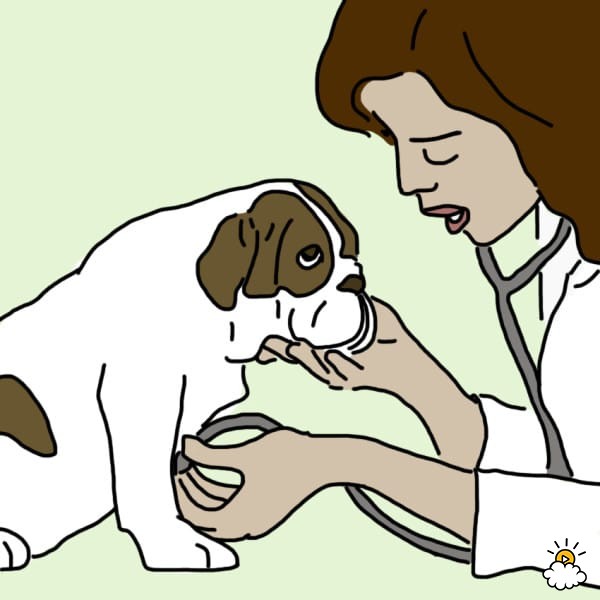As any pet proprietor knows, our creatures have an inconceivably extraordinary scope of feelings. It is anything but difficult to advise when our pooches are glad to see us or our felines are feeling especially modest. Be that as it may, shouldn’t something be said about when our pets are feeling miserable?

Like their human partners, it is completely conceivable (and shockingly normal) for our pet pooches to be discouraged. Truth be told, agreeing to The Telegraph, an investigation of Britain’s pooches found that one of every four of them experienced misery. Luckily, dependable pooch proprietors wherever are taking care of their sad canines.
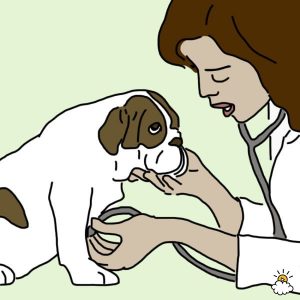
Similarly as there are approaches to treat canine joint inflammation, there are a few straightforward approaches to perceive and treat doggie misery. Look through this selective rundown of canine wretchedness causes and medications beneath. Understanding the reasons for my pooch’s downturn and attempting these treatment tips can be so critical to the bliss and psychological wellness of my pup!How does your little guy reveal to you when they are miserable?

Does your pooch experience the ill effects of doggie sadness? As pet proprietors, it is our duty to screen the strength of our pooches. And keeping in mind that they can’t verbally reveal to us when something isn’t right, their conduct really can be a huge indicator.Lovetoknow.com states, “Ordinarily, canines show side effects of wretchedness when there is something genuinely amiss with them. Conduct changes may show the presence of a restorative problem.”

Since your pooch’s downturn could be medicinally related, it’s critical to screen them intently and carry them to a vet if things don’t change.Significant changes to a day by day schedule can be very shaking to any individual, so it bodes well that it could contrarily influence our mutts as well.WebMD composes that “significant changes in a canine’s life could prompt times of sorrow. Those incorporate moving into another home [or] another mate or child in the household.”

Even an adjustment in the canine’s calendar, for example a stay-at-property holder who accepts a position, can make a pooch get down.”Because hounds have such an enormous limit with respect to adore, it can hit them extra hard when they lose someone.According to WebMD: “The two most regular triggers of serious canine sadness are the departure of a buddy creature or the loss of an owner.”And be cautious the pooch isn’t just reacting to the responses of others in the home.”

It might possibly astonish you to learn that dogs frequently receive the enthusiastic condition of their proprietor — in this case, depression.According to Mental Health Daily, “In the event that you yourself experience the ill effects of despondency, it could be coming off on your canine.”And even more concerning, “people that are depressed may not be taking proper care of their pets and this may lead to their dog feeling depressed.”
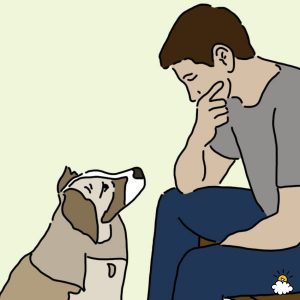
Quite a number of people find themselves down in the dumps during colder or rainier weather. Similarly, your dog’s mood can be largely affected by the season or weather.Vetinfo.com writes, “Sometimes, weather can affect your dog’s mood as well. If the weather has recently changed, that might be the culprit.”

The good news is, when the weather improves, your dog’s mood is likely to improve with it!Just as humans become more aware of their mortality as they grow older, dogs can also sense when they are approaching the tail end of their lives.According to Dogsaholic.com, one of the strong possible causes of doggie depression is “old age.”
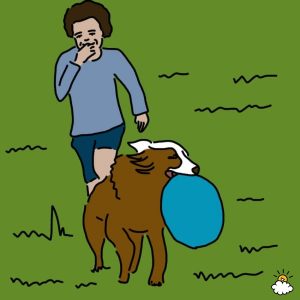
They write, “Some dogs become depressed if they can tell their time is coming soon.”Keep scrolling below for six simple ways to treat your canine’s depression, putting them on the path to a happier and healthier life!Just as endorphins released during physical activity can help humans, they can improve the moods of our canines as well.According to Dogs Naturally magazine, “Exercise not only lifts depression, but it boosts the immune system because the lymph system is activated by motion.”The physical health benefits are just as important as the mental health benefits. So take your dog to the park and get them moving ASAP!

One great way to build great doggie habits is by rewarding them for good behavior. For a depressed dog, these rewards are doubly important when they show signs of happiness.Veterinary behaviorist Dr. Bonnie Beaver tells WebMD, “If the only thing that still gets a little tail wag out of your dog is a car ride, then take him for a series of short rides each day, praising and rewarding him when he appears happier.”Conversely, it is important not to give your dog treats when they exhibit negative behavior.

This can encourage and prolong the depression.In the case of pets who may be depressed after losing a companion, a new companion can be extremely beneficial, under the right circumstances.Animal behavior specialist Dr. John Ciribassi spoke with WebMD. “Sometimes, if the dog is depressed because of the loss of a companion, getting another pet can help… But it has to be done carefully with both the family’s and the dog’s needs taken into account.”Allowing your dog to socialize with other dogs is one great way to potentially combine endorphin-boosting exercise with much-needed companionship.Mental Health Daily writes, “What might help is getting it out around other dogs at a dog park.”Recognizing playful and positive behavior in other dogs may just remind your pup about how great that positivity can feel.Perhaps the best cure for doggie depression is a whole lot of love.
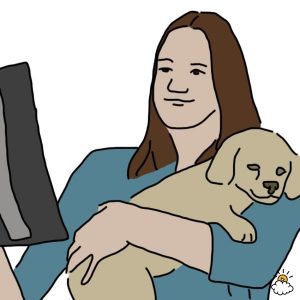
While you want to be careful not to reward negative behavior, showing your pup that you care can help to pull them out of their funk.Dogsaholic.com writes: “Just a little extra attention can go a long way with a depressed dog. Sit with them often, showing you support and care for them as much as you always have.“This can be especially helpful if you think the root cause of your dog’s depression is due to being lonely throughout the day while you are at work.”Because depression can be an indication that something is medically wrong with your pup, it is important to take them to the vet if their negative mood persists.According to Dogtime.com, “If your dog isn’t bouncing back, and if she’s losing weight or acting generally unresponsive to play and activity, it’s time for a checkup with the vet, who may run some blood work to be sure there’s not an underlying medical condition.”Recognizing the causes of doggie depression and taking action with these simple treatments can truly help your pup to return to their happy and healthy normal selves.How does your dog let you know when something is wrong?
